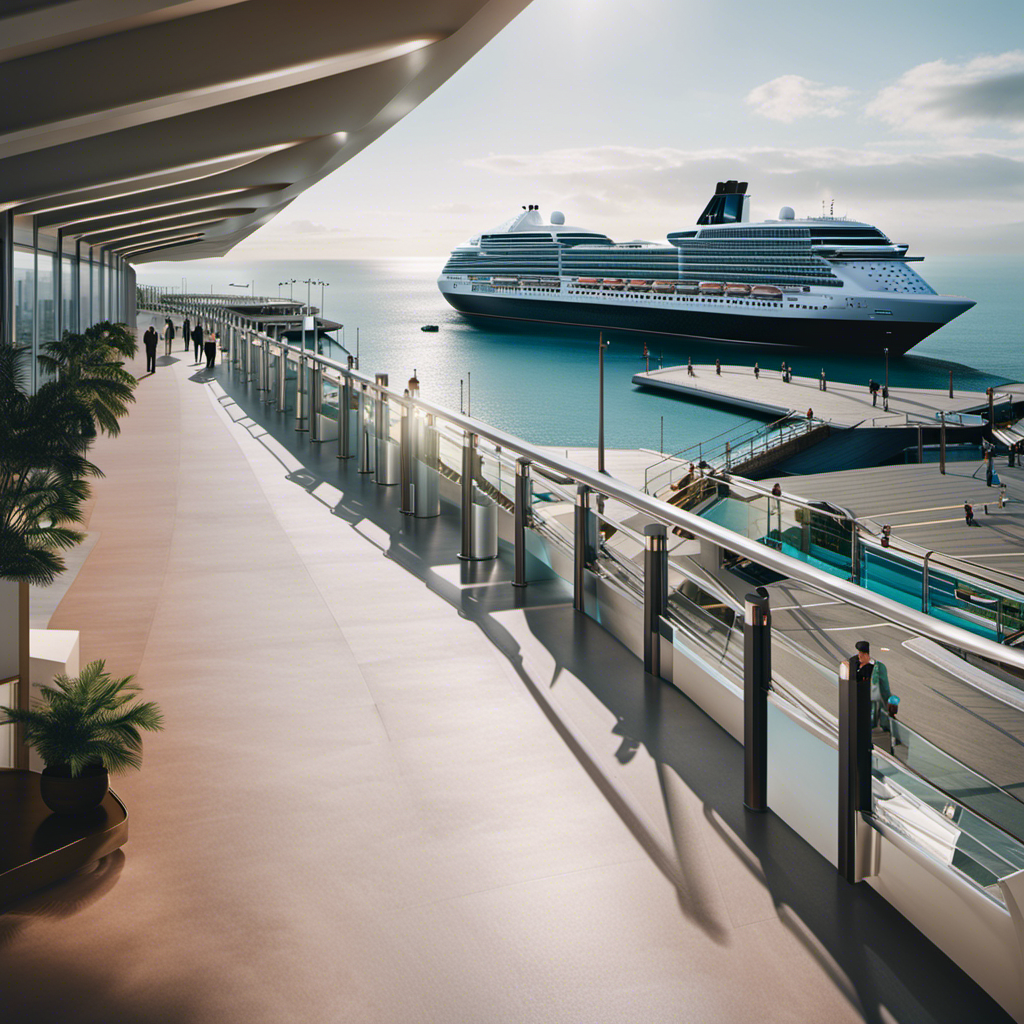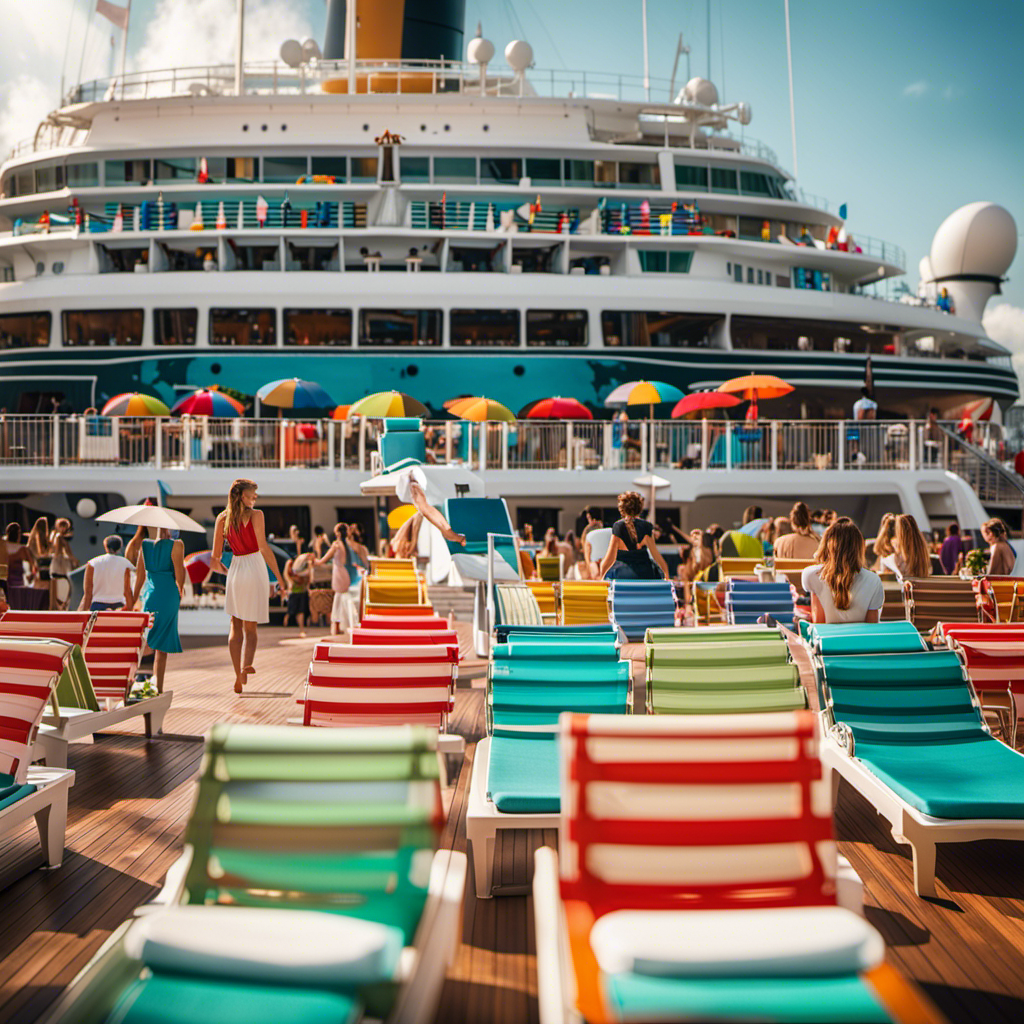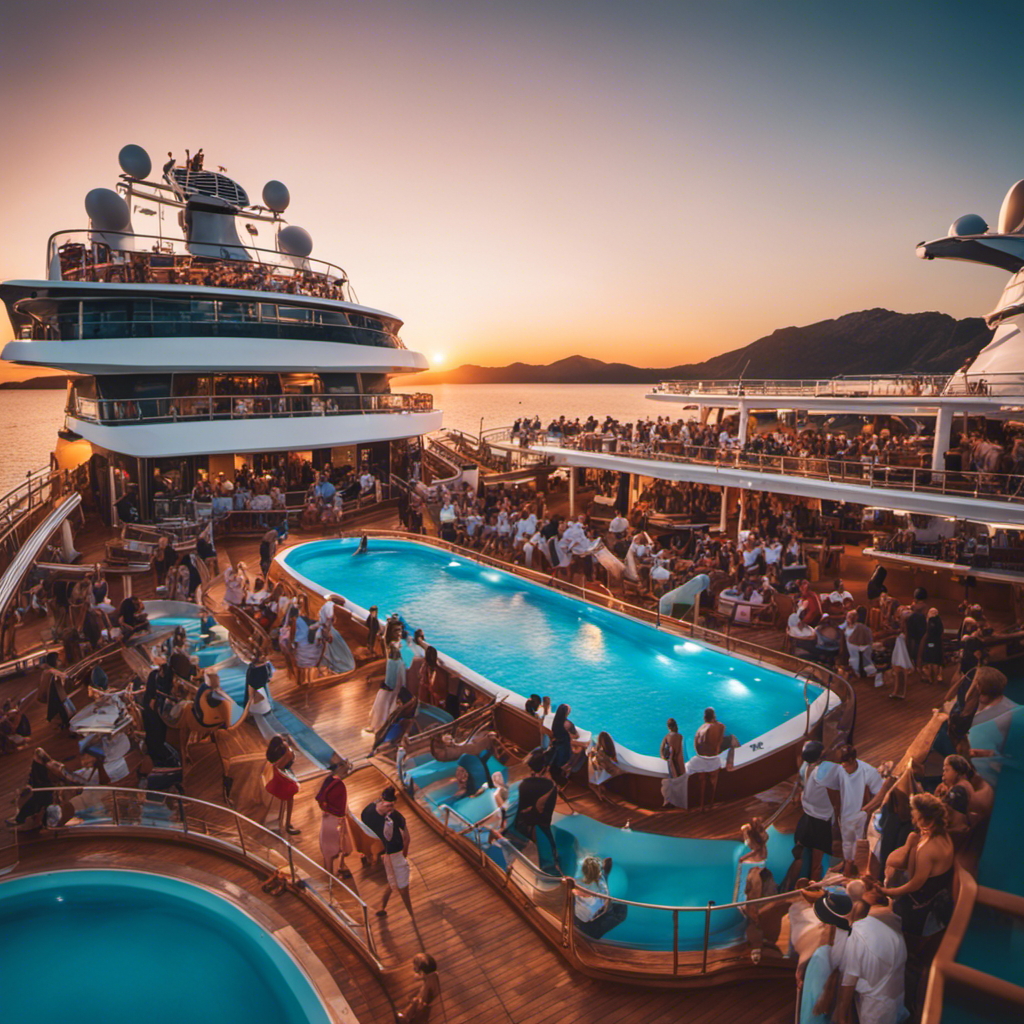Stepping onto the cruise ship, I’m enveloped by a tranquil feeling. The hectic nature of airport security screenings feels like a distant memory.
Cruise security, a quick and relaxed process, prioritizes passenger enjoyment over long lines. With private security teams and efficient screening procedures, I breeze through the check-in, carry-on luggage screening, and personal screening.
The difference from airport security is stark, with no need to remove liquids or laptops, and no body scanners.
Join me as we explore the ease and efficiency of cruise security.
Key Takeaways
- Cruise security check process is quick and efficient, taking only minutes.
- There are no restrictions on liquid quantities for carry-on luggage.
- Cruise security screening is more relaxed and less intrusive compared to airports.
- Passengers do not need to worry about missing the cruise due to security delays.
The Security Check Process
The security check process at cruise terminals is quick and relaxed. Private security teams perform the check-in, and there is no need to remove liquid items or laptops from bags.
When I went through the security check, I simply presented my boarding documents and passport, and the security agent quickly checked them. Then, I lined up for the x-ray machine and metal detector. An attendant checked my boarding pass while my bags went through the x-ray machine.
Although most liquid items are allowed, some may be flagged for additional screening. It’s important to note that while the process is efficient, security measures are still in place to ensure the safety of all passengers.
Carry-on Luggage Screening
When going through carry-on luggage screening, I don’t have to remove my liquid items or laptops from my bag. This makes the process much more convenient and efficient. Here are three things to keep in mind during carry-on luggage screening:
-
No need to remove liquid items: Unlike airport security, where you have to remove all liquids from your bag and place them in a separate plastic bag, cruise security allows you to keep your liquid items in your carry-on. This means you don’t have to worry about digging through your bag or dealing with spills.
-
Laptops stay in the bag: Another advantage of cruise security is that you don’t have to take out your laptops and place them in a separate bin. You can simply leave them in your bag, saving you time and effort.
-
Additional screening: While most liquid items and laptops can stay in your bag, it’s important to note that some items may still be flagged for additional screening. This could include liquids that appear tampered with or contain alcohol. It’s always a good idea to follow the guidelines and cooperate with the security personnel to ensure a smooth process.
Overall, the carry-on luggage screening process during a cruise is designed to be quick and hassle-free. You can keep your liquid items and laptops in your bag, reducing the need for extra steps and making your journey more enjoyable.
Personal Screening
As I pass through personal screening, I can keep items in my pockets as long as they are not metal. This is a stark contrast to airport security, where all items must be removed from pockets.
At cruise terminals, metal detectors are used instead of body scanners, creating a more relaxed and less intrusive screening process. The absence of pat-downs further adds to the efficiency and convenience.
When comparing to airport security, it is evident that cruise security prioritizes passenger enjoyment over long security lines. The use of metal detectors instead of body scanners also eliminates any concerns about radiation exposure.
Overall, the personal screening process during a cruise is quick, efficient, and more relaxed, making the entire security experience hassle-free.
Time Efficiency
I’m impressed by the time efficiency of the security lines at cruise terminals. The benefits of a quick security process include:
-
Minimal wait times: Security lines at cruise terminals are usually quick, taking only minutes. This allows passengers to board the ship promptly and start enjoying their vacation without unnecessary delays.
-
Expedited process: Multiple lines and fast-moving passengers help expedite the security process. Cruise lines prioritize passenger enjoyment over long security lines, ensuring a smooth and efficient experience.
-
Peace of mind: With quick and efficient security, there’s no need to worry about missing the cruise due to security delays. Passengers can relax knowing that they will board the ship in a timely manner.
-
More time to enjoy: A quick security process means more time to explore the ship, participate in activities, and relax on the cruise. Passengers can make the most of their vacation without wasting time in long security lines.
-
Hassle-free experience: Compared to airport security, the cruise security process is more relaxed and less intrusive. There are no restrictions on liquid quantities, no body scanners, and no pat-downs. This adds to the overall ease and convenience of the cruise experience.
Differences From Airport Security
Compared to airports, the screening at cruise terminals is less restrictive and more efficient. At airports, there are strict liquid restrictions, requiring travelers to limit their liquid quantities to small containers and place them in a clear plastic bag. However, at cruise terminals, there are no such restrictions on liquid quantities. This means that you can bring larger bottles of your favorite toiletries without any hassle. To further illustrate the differences between cruise and airport security, here is a table:
| Cruise Security | Airport Security |
|---|---|
| No liquid restrictions | Strict liquid restrictions |
| Metal detectors only | Body scanners and metal detectors |
| No pat-downs | Pat-downs may be required |
| Relaxed and efficient screening process | Lengthy and sometimes intrusive screening process |
As you can see, the cruise terminal security process offers a more relaxed and efficient experience compared to airports. So, when planning your next vacation, consider the ease and convenience of cruising.
Private Security Guards
Private security guards are responsible for performing the check-in process at cruise terminals, ensuring the safety and efficiency of the screening. Here are four key points about security personnel and their training:
-
Highly Trained Professionals: Security guards undergo rigorous training to handle various security scenarios and ensure the safety of passengers and their belongings.
-
Expertise in Screening Procedures: Security personnel are well-versed in the cruise security check process. They are trained to efficiently manage the flow of passengers and their luggage through the screening checkpoints.
-
Emergency Response Preparedness: These guards are trained to handle emergencies and respond swiftly in case of any security threats or incidents. They work closely with cruise staff and local authorities to maintain a secure environment.
-
Customer Service Skills: In addition to their security responsibilities, guards are trained to provide excellent customer service. They are approachable, friendly, and ready to assist passengers with any concerns or questions they may have.
Overall, the presence of highly trained security personnel ensures a safe and smooth check-in process for all cruise passengers.
Relaxed and Less Intrusive Screening Process
Passing through the metal detector at the cruise terminal, my pockets were checked to ensure I didn’t have any metal items.
The screening process for cruise security is relaxed and less intrusive compared to airports. One major difference is that there are no restrictions on liquid quantities, unlike airports. This means you can bring your favorite toiletries and beverages without worrying about size limitations.
All carry-on luggage goes through an x-ray machine, and liquid bottles may be flagged for additional screening if they appear tampered with or contain alcohol. However, there is no need to remove liquid items or laptops from your bags.
Additionally, during personal screening, you simply pass through a metal detector, and there are no body scanners or pat-downs. The cruise security process prioritizes passenger enjoyment and ensures a quick and efficient experience.
Frequently Asked Questions
Are There Any Restrictions on the Size or Quantity of Liquid Items That Can Be Brought on a Cruise Ship?
Yes, there are restrictions on the size and quantity of liquid items that can be brought on a cruise ship. It is important to check with the cruise line for specific guidelines on liquid restrictions and any restrictions on electronic devices.
Is There a Separate Line or Process for Passengers With Laptops or Other Electronic Devices in Their Carry-On Bags?
There’s no separate line for laptops or electronic devices in carry-on bags during cruise security. Security measures for passengers with disabilities or medical conditions are in place to ensure a smooth process.
Can Passengers Wear Belts and Shoes Through the Security Check Process, or Do They Need to Be Removed?
Passengers can keep their belts and shoes on during the security check process. It is a quick and relaxed process where personal belongings are not required to be removed.
Are There Any Additional Security Measures in Place for Passengers Traveling With Young Children or Infants?
Are there any additional security measures for passengers traveling with young children or infants? Are there restrictions on the size or quantity of liquid items that can be brought on a cruise ship?
Is There a Separate Security Screening Process for Passengers With Disabilities or Medical Conditions?
Yes, there is a separate screening process for passengers with disabilities or medical conditions. The cruise terminals have procedures in place to accommodate and assist individuals who may need additional support during the security check.










